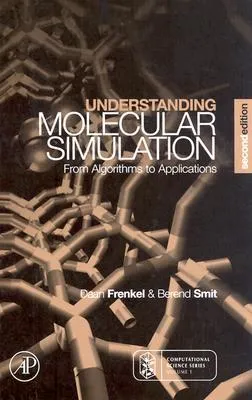Understanding Molecular Simulation: From Algorithms to Applications
By (author): "Berend Smit, Daan Frenkel"
Publish Date:
July 1st 1996
ISBN0122673514
ISBN139780122673511
AsinUnderstanding Molecular Simulation: From Algorithms to Applications
Original titleUnderstanding Molecular Simulation (Computational Science Series, Vol 1)
Understanding Molecular Simulation: From Algorithms to Applications explains the physics behind the "recipes" of molecular simulation for materials science. Computer simulators are continuously confronted with questions concerning the choice of a particular technique for a given application. A wide variety of tools exist, so the choice of technique requires a good understanding of the basic principles. More importantly, such understanding may greatly improve the efficiency of a simulation program. The implementation of simulation methods is illustrated in pseudocodes and their practical use in the case studies used in the text.Since the first edition only five years ago, the simulation world has changed significantly -- current techniques have matured and new ones have appeared. This new edition deals with these new developments; in particular, there are sections on:Transition path sampling and diffusive barrier crossing to simulaterare eventsDissipative particle dynamic as a course-grained simulation techniqueNovel schemes to compute the long-ranged forcesHamiltonian and non-Hamiltonian dynamics in the context constant-temperature and constant-pressure molecular dynamics simulationsMultiple-time step algorithms as an alternative for constraintsDefects in solidsThe pruned-enriched Rosenbluth sampling, recoil-growth, and concerted rotations for complex moleculesParallel tempering for glassy HamiltoniansExamples are included that highlight current applications and the codes of case studies are available on the World Wide Web. Several new examples have been added since the first edition to illustrate recent applications. Questions are included in this new edition. No prior knowledge of computer simulation is assumed.
